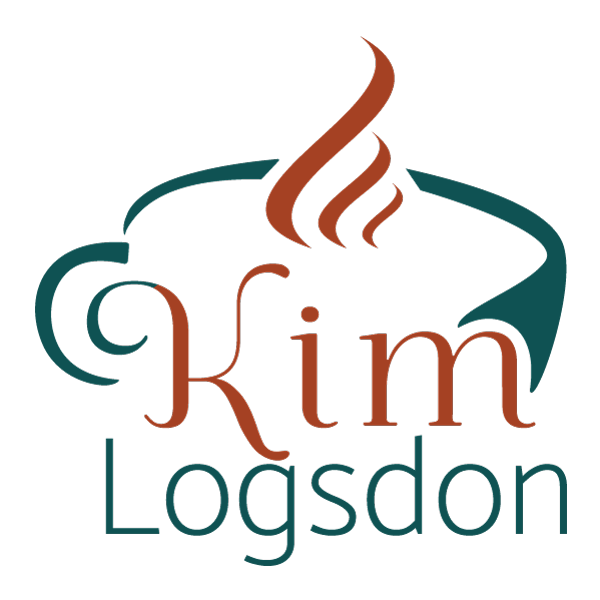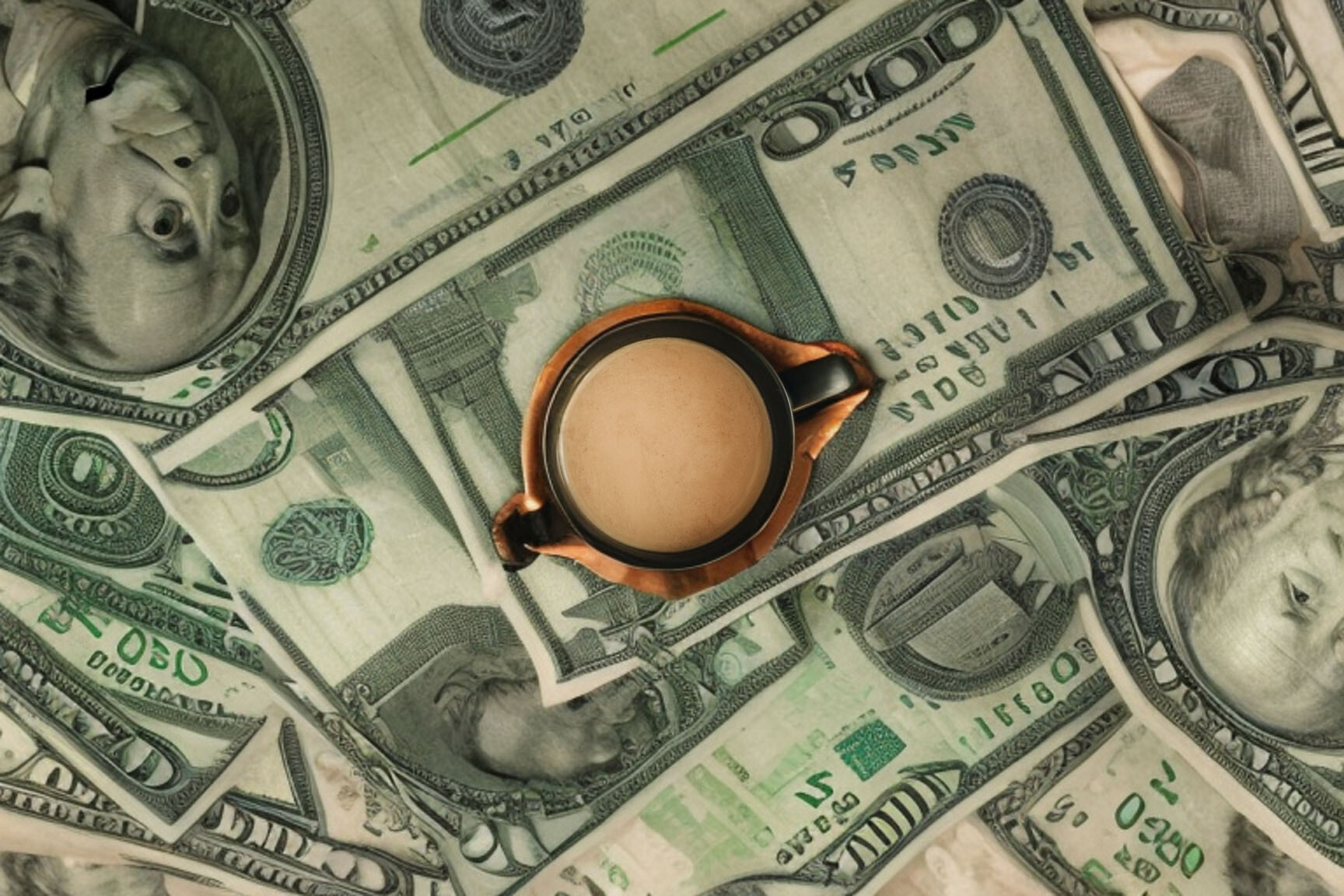Extraordinary Customer Experience
Ken always loved working with people in the service industry. In his early years as a barista, he worked at a ski resort in Utah offering quick cups of coffee to the skiers coming in from the cold slopes. But because of the volume of customers, he had little time for interaction with the people. “This was more of a way to make people smile with a hot cup of coffee,” he said, and then on to the next patron. Ken was not a fan of this type of service as it didn’t give the kind of customer experience he wanted to provide. “Taking an extra couple of seconds and doing it right makes a big difference,” he said.
As luck would find it, Ken found his next job as a bartender, “it’s the same exact job as a barista, just a different vice at a different time of day, making very specific drinks for people that are generally particular about how they are having it,” he explained.
This allowed him more time with his customers as he listened to the unfolding of their day, good, bad, or indifferent. Although Ken loved this type of interaction, the hours that a bartender worked were long and late and didn’t quite fit the lifestyle he wanted, but it paid the bills.
Yearning for a gig that would allow Ken and his wife Sue to continue their love of providing stellar customer service, they contemplated opening a small bar or nightclub. As they were looking for this next opportunity, they searched businesses for sale near them using the word “cafe” and they stumbled upon a small coffee shop in their area with a roasting facility. This piqued Ken’s interest immediately as this coffee business would offer both wholesale and retail opportunities and would ultimately create more revenue streams. Having always been a morning person, Ken realized the cafe experience would also fit into the earlier schedule that he so desired, versus the late nights that the life of a bartender would ensue. This idea made the most sense to Ken and Sue, as he had already worked as a barista. “I could do this, I just have to learn how to roast. There’s a computer on the machine, it will be easy,” he said. Little did he know that learning to roast would create quite the learning curve.
they contemplated opening a small bar or nightclub. As they were looking for this next opportunity, they searched businesses for sale near them using the word “cafe” and they stumbled upon a small coffee shop in their area with a roasting facility. This piqued Ken’s interest immediately as this coffee business would offer both wholesale and retail opportunities and would ultimately create more revenue streams. Having always been a morning person, Ken realized the cafe experience would also fit into the earlier schedule that he so desired, versus the late nights that the life of a bartender would ensue. This idea made the most sense to Ken and Sue, as he had already worked as a barista. “I could do this, I just have to learn how to roast. There’s a computer on the machine, it will be easy,” he said. Little did he know that learning to roast would create quite the learning curve.
Ken visited the coffee shop for sale a few times to see how the store ran, what the customer experience was like, and most importantly how the coffee tasted. One day, after ordering numerous cups of different coffees, the owner of the shop noticed him. But it wasn’t the full motorcycle gear that Ken was dressed in that got him noticed, it was the shot of espresso, the cappuccino, the macchiato, and the caramel macchiato that he ordered within 30 minutes that got him noticed. The owner commented, “No one person orders multiple cups of coffee by themselves in one sitting.”
The idea of owning this cafe piqued his interest and fostered numerous opportunities that he could create in his resident state of Washington. He knew coffee was a big thing in the Pacific Northwest since it served more cups of coffee per capita than all of New York state. The weather would also play a significant role since it had more cloudy and rainy days than days full of sunshine.
After speaking with the owner and negotiating a purchase price, it became abundantly clear to Ken that this cafe had huge potential but he needed to learn the most important part of this business, roasting. After the sale closed, the previous owner stayed on for a week to show Ken the ropes. The handwritten roasting notes he had were a bit archaic but they worked, and Ken learned how to roast coffee beans and his excitement for his new business grew.
Paper Tiger Coffee “reopened” as Ken’s new coffee endeavor on National Coffee Day, September 29, 2011. Although he made one rookie mistake and opened the cafe without any cash on hand, it was a huge success as his new customers drank free coffee all day. What an amazing way to draw in guests old and new to meet Ken, the new owner, barista, and roaster.

Community Awareness and Involvement
Besides learning how to roast the different coffee bean profiles, Ken’s first focus was to create relationships with the local businesses. He loaded up pots of coffee and cups and went from one local business to another offering them free coffee while informing everyone of the new ownership. This business-to-business idea is not a new idea; however, it occurred to Ken that he needed to establish a new connection with the other local business owners. He was determined to create a fun relaxing atmosphere where people could come and chill with a great cup of coffee made the way they wanted it. Ken turned this $75 dollars day cafe into $450 a day, in just a few months, by providing a great product and changing the attitude of how people were greeted and treated. Ken derived that “if you work on the easy stuff and keep building and looking towards that next step, your business will grow and succeed, no matter how you take your coffee.”
After owning the cafe for just a short timeKen worked on responding to every review, past and present to get old customers and new customers coming in to see what exciting changes had been made. Ken took the company from almost zilch, to profitable in just a short period of time by paying attention to the people, his customers, and his community.
I found Ken’s drive for this business a complete labor of love. Having been in the service industry for many years, Ken’s goal of providing a warm and friendly vibe has always remained his main focus.
“And then one day,” Ken shares,
“I walked into the shop and there is an orthodox Jewish Rabbi having a discussion with one of our regulars. At the next table over, there is a Catholic and Lutheran priest together discussing their morning, and at the back table there was a Baptist police officer, having a prayer meeting with some people that he was going over a case with.”
(No, this was not a joke). This confirmed that his place was truly special, and what ultimately created the everyday life of the cafe.
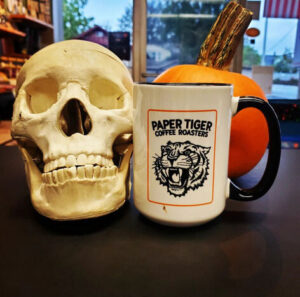 Flexibility for Brewing New Business
Flexibility for Brewing New Business
Community involvement didn’t stop at the local businesses. Ken knew that if he wanted to create a brand that folks would recognize, he would have to “think outside the box” and stay open and flexible to what the people wanted.
Being an open-minded person and always thinking two steps ahead of requested products was Ken’s key component to growing the business and making additional revenue. “Just when you think you know what will be ordered or requested, you don’t,” Ken explained. Like in most businesses, “half of what you prepare for doesn’t usually pan out. But if you have an open mind and you are able to tweak and adjust just enough for something that is requested, you can be very successful.” This flexibility would offer a great opportunity for Ken and the cafe.
Ken knew having more wholesale opportunities would bring vast potential for additional revenue to the shop. This exploded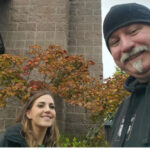 when a local espresso caterer, Terry Patton of Espresso Elegance in Seattle walked into the cafe and ordered multiple coffees. Ken recognized this tactic and knew there was an ulterior motive to this Terry’sorders. After chatting with Terry, he and Ken’s relationship bloomed into serving some of the biggest names in the area including large tech companies, local professional sports teams, and even a black-tie awards cruise.
when a local espresso caterer, Terry Patton of Espresso Elegance in Seattle walked into the cafe and ordered multiple coffees. Ken recognized this tactic and knew there was an ulterior motive to this Terry’sorders. After chatting with Terry, he and Ken’s relationship bloomed into serving some of the biggest names in the area including large tech companies, local professional sports teams, and even a black-tie awards cruise.
“You have to be able to plan for the unexpected and then provide and supply what is needed at the time,” Ken boasted. For instance, Ken knew that having 5-gallon urns on standby would eventually be a huge opportunity for visibility that he could collect on. Providing urns of coffee would allow Paper Tiger Coffee to supply large amounts of coffee to local conventions and local schools for teacher appreciation days. This kicked off his catering business in a big way.
Creating these relationships with the community was Ken’s mission. He knew that if he saw his customers in public and offered them an authentic place of comfort and good coffee, they would return again and again. In turn, Ken and his wife did three to five farmers’ markets a week. Although Ken admits that this was an exhausting undertaking, this got them the extreme exposure in the community that was needed to create a brand that would be recognized and that he could be proud of.
When I asked Ken what he would have done differently he responded, “I would have hired the extra person to work in the business while I worked on the business. When you’re working in the business you’re not doing the stuff to keep the business moving forward. When you’re working on the business you can grow more.”
And just when Ken thought everything was running like a well-oiled machine, the unexpected happened. COVID-19.
Like most small business owners, Ken knew the foot traffic would change and ultimately affect his day-to-day earnings, but he was determined to once again, think outside the box and not let anything get in the way of his success. Because the coffee business was part of the food and beverage industry, the government labeled it an essential service, and he was able to keep Paper Tiger Coffee Cafe open. Ken hustled every day and kept all of his staff employed, having to cut their hours back by one hour a shift. Ken had also set aside a percentage of earnings that would support the cafe, in case there was a lull.
While the rest of the country came to a screeching halt, Ken was able to maintain his customer pool and keep them caffeinated by whatever measures necessary. He also purchased a canning machine to offer cold brew coffee and his subscription services steadied.
Ken is very proud of the fact that he didn’t have to take out any loans or utilize any government assistance during this time. And while cash flow was tight and the small nest egg that once was a safety net, diminished, Ken remained focused and stayed afloat.
When the country started coming back to normalcy Ken collaborated with some of the local vendors to create coffee and pastry packages for local educational meetings and organizational functions. He cross-branded with companies like RollingPin Eatery, Fred Meyer, and Top Pot to further cement his foothold in the community. He also employed students from the School for the Deaf and the School for the Blind. Tapping into their senses not only got this special community involved in a big way, but it also made him a better roaster.
When I asked Ken what his biggest takeaway was, he insisted, “You are what your customers say you are. Stay flexible and always open-minded to what the needs are at any given moment.”
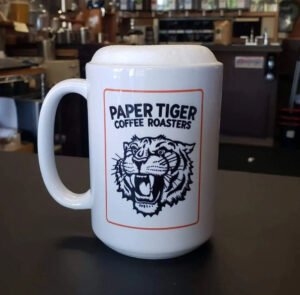 Once Ken got the cafe stable again after the pandemic hit, he knew it was time to find someone who would take it over and for him to move on to the next big thing, being a grandfather. He had a few people interested in the coffee business, but one in particular made the move and made him a serious offer. Ken felt good about the deal and that Paper Tiger would be in good hands, and then at the tenth hour, the buyer got cold feet. Ken was crushed but knew that the product he created was worth the wait for the right person.
Once Ken got the cafe stable again after the pandemic hit, he knew it was time to find someone who would take it over and for him to move on to the next big thing, being a grandfather. He had a few people interested in the coffee business, but one in particular made the move and made him a serious offer. Ken felt good about the deal and that Paper Tiger would be in good hands, and then at the tenth hour, the buyer got cold feet. Ken was crushed but knew that the product he created was worth the wait for the right person.
He then found his buyer in Brittany Howard. Brittany had the same passion for coffee and serving the community through great customer service. She had a local coffee truck that had recently been vandalized and was also looking for the next business venture. She has since bought the cafe, has learned the roasting ropes from Ken, and continues the traditions that he and PaperTiger created.
Paper Tiger Coffee’s flagship Brazilian blends are still offered today, they continue to employ students from the Schools of the Deaf and Blind and Ken is proud to occasionally collaborate and help Brittany when he is needed.
by Kim Logsdon and Dana Moraci
